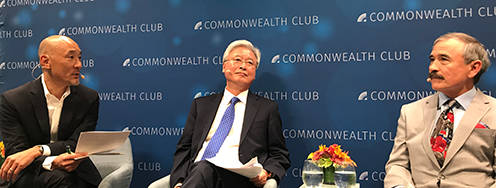Time For a New Conversation With Pakistan
Pakistan often makes rhetorical statements that are contradictory to its actions – which is not the way to make long-term, sustainable progress on the security issues of most concern to Pakistan, its neighbors and its partners. The problem is that the rest of us are not doing enough to put an end to that duplicity. It’s time to change course.
Over the years, Islamabad has successfully convinced the United States that it is a willing and cooperative partner in the U.S. campaign against terrorism in the region – while simultaneously fostering, either directly or indirectly, the growth of terrorist and insurgent networks on its soil. It has convinced India that it is ready to return to the negotiating table to develop confidence-building measures between the two nuclear-armed countries – but in the meantime is increasing the rate at which it is expanding its nuclear arsenal.
And perhaps most alarmingly, Pakistan seems to have convinced itself that its nuclear weapons are safe. Yet increasingly frequent and credible reports are corroborating long-standing suspicions that the integrity of the Pakistani military and intelligence services has been compromised by extremist elements, which have the potential to facilitate a successful attack on a Pakistani nuclear installation.
To make matters worse, the rest of us have fallen for Pakistan’s maneuvers. The United States provides billions of dollars in aid to Pakistan, much of it for security and internal stability – but it is questionable how effective those dollars have been. India has exercised tremendous restraint in its reaction to terrorist attacks that emanated, one way or another, from Pakistan over the past decade. Of course, this restraint is quite commendable, but New Delhi may not be so reserved if and when another attack occurs on its soil – and that would cause long-term and compounded problems for all involved.
So how can we break this cycle?
There is some good news: Just this weekend, the Obama administration announced that it would withhold $800 million, or nearly one-third, of the $2.7 billion in annual U.S. military aid to Pakistan. This move indicates a serious reassessment of the U.S.-Pakistan relationship, and creates space for a few options going forward.
The first option is to give up and completely disengage from Pakistan. Realistically, however, this is unacceptable, particularly at a time when the United States is trying to withdraw from Afghanistan without creating a governance and security vacuum in the region. To disconnect now altogether would be catastrophic.
The second option is to maintain the status quo. Even though we are fully aware of how disastrous the outcome could be in the end, it seems we are generally more afraid of pursuing an alternate path. But our "business-as-usual" approach is not prudent either, since it has produced little tangible progress.
The third and smartest option is to stop going any further down this path. Along with other regional partners, the United States can accept and publicly acknowledge the difficult truth – that in the current scenario we have made little progress. Although this admission would take time and effort, just working towards that point would create space for fresh engagement amongst all parties under a different set of understandings and assumptions.
The Obama administration’s decision this weekend is a step in this direction, and hopefully will prompt a frank reevaluation on both sides of how to strengthen Pakistan’s relationship with the U.S. in a mutually beneficial and sustainable manner.
Ultimately, while Pakistan indeed faces very serious challenges, it can work with the United States on strengthening internal and external security, if it can learn to trust Washington again. Similarly, Pakistan can normalize its relations with India. Indeed, it must – any other path will lead to destabilization and conflict.
Most importantly, Pakistan can work towards increasing security on the subcontinent without having to rely so heavily on its nuclear weapons – for example, through collaboration and confidence-building measures with India on both nuclear and non-nuclear issues, and through similar dialogue and initiatives with the United States.
The bottom line is that the starting point for all of these challenges is a new conversation, not a continuation of the status quo. It’s time for all of us to start anew.




